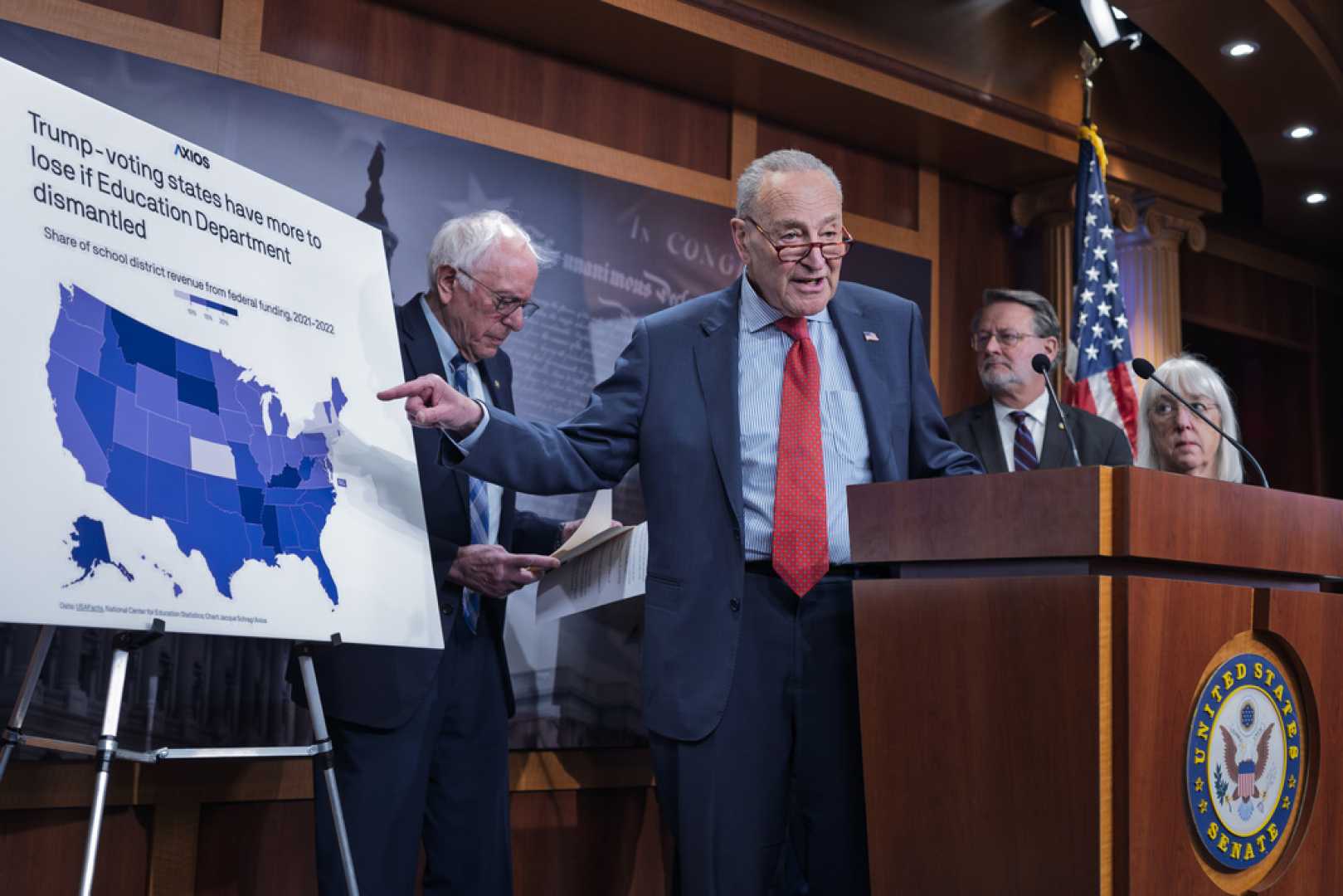Politics
Schumer Targets Republicans with Medicaid Cuts Campaign in Key Districts

HUNTINGTON, N.Y. (AP) — In a strategic move to regain ground in Republican-controlled regions, Senate Democratic Leader Chuck Schumer launched a focused campaign on Monday, visiting nursing homes in Staten Island and Long Island to highlight potential Medicaid cuts proposed by House Republicans. The effort aims to demonstrate the real-life implications of federal budget decisions and to challenge Republican lawmakers directly in their own districts.
Two nursing homes served as the backdrop for Schumer’s message, specifically chosen because they are located in congressional districts represented by Republicans who support the proposed cuts. “I’m here to localize the budget data,” Schumer said as he addressed the gathered community members and healthcare professionals. “The talk about big budget issues in Washington impacts real people – people who need this help. Cutting it would be devastating, and that’s why we’re fighting it tooth and nail.”
This visit marks a shift from traditional outreach to a more confrontational approach designed to frame Democrats as protectors of social safety nets, forcing GOP representatives to justify their proposed budget cuts and their potential harm to vulnerable populations.
Monday’s events were part of a broader strategy by Schumer and Senate Democrats to carry their message into suburban districts that could sway crucial midterm elections. By bringing attention to the dangers of reducing Medicaid funding, the Democrats aim to connect with suburban voters concerned about healthcare, particularly as cuts could result in increased costs for families and a loss of critical care services.
“Look, it’s not going to work in one day, and it’s not going to work if we just do something once every week, but if we’re at it day in and day out,” Schumer told The Associated Press in an interview. He expressed confidence that sustained efforts would gradually shift public perception, highlighting the negative effects of the policies supported by President Donald Trump and his allies.
According to Schumer, funding for Medicaid and Medicare is vital, as these programs support the majority of residents in nursing homes across the country. Proposed cuts would not only shift the financial burden to states and families but could also leave many individuals without the necessary healthcare coverage. “It’s a potent real-world consequence to contrast against abstract spending cuts,” Schumer indicated, adding that the Republican policies need to be closely examined by the public.
Schumer’s campaign also reflects tensions within the Democratic Party. After facing backlash from some party progressives over compromises regarding government funding, Schumer and his team decided that it was essential to engage more directly with constituents, particularly in districts where their voice may not hear as strongly.
During his road trip, Schumer embodied a blend of party leadership and personal connection, maintaining what he describes as an “orchestra” of Democratic voices, with Senators like Chris Murphy and Cory Booker joining him in the outreach effort. This strategy, he says, aims to create a unified Democratic message that resonates with a wide range of voters, while drawing firm distinctions from the GOP’s actions.
The focus on racial equity and economic justice is portrayed as a moral imperative, aiming to align Democratic goals with the needs of the working and middle classes who feel stressed by rising costs and diminished public services. Schumer’s emphasis on clarity and populism illustrates a strategic recalibration by Democrats, aiming to revive local, tangible issues in response to the national political landscape.
As Schumer continues to rally support, he noted that, “If we keep hammering away every day, I believe Trump’s popularity and effectiveness will decline significantly,” indicating that he views public awareness and sustained outreach as ways to shift the political narrative in favor of Democratic ideals.












